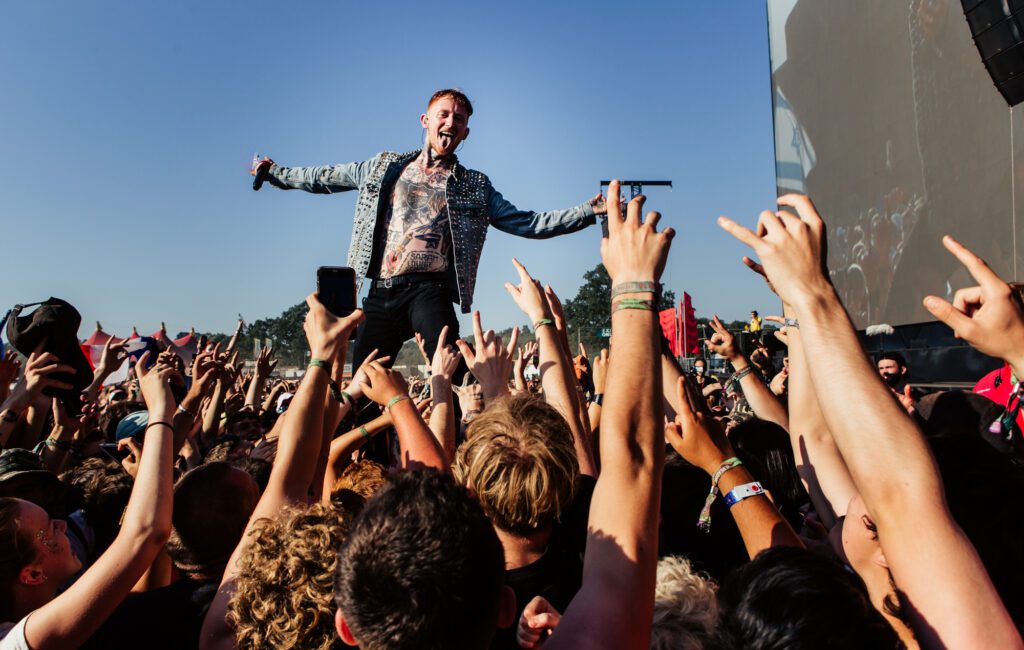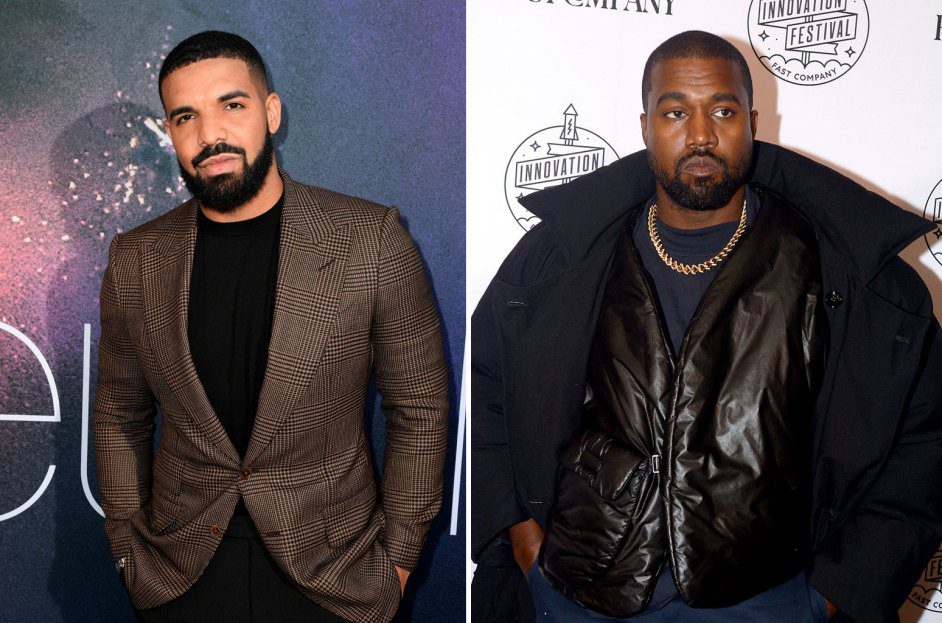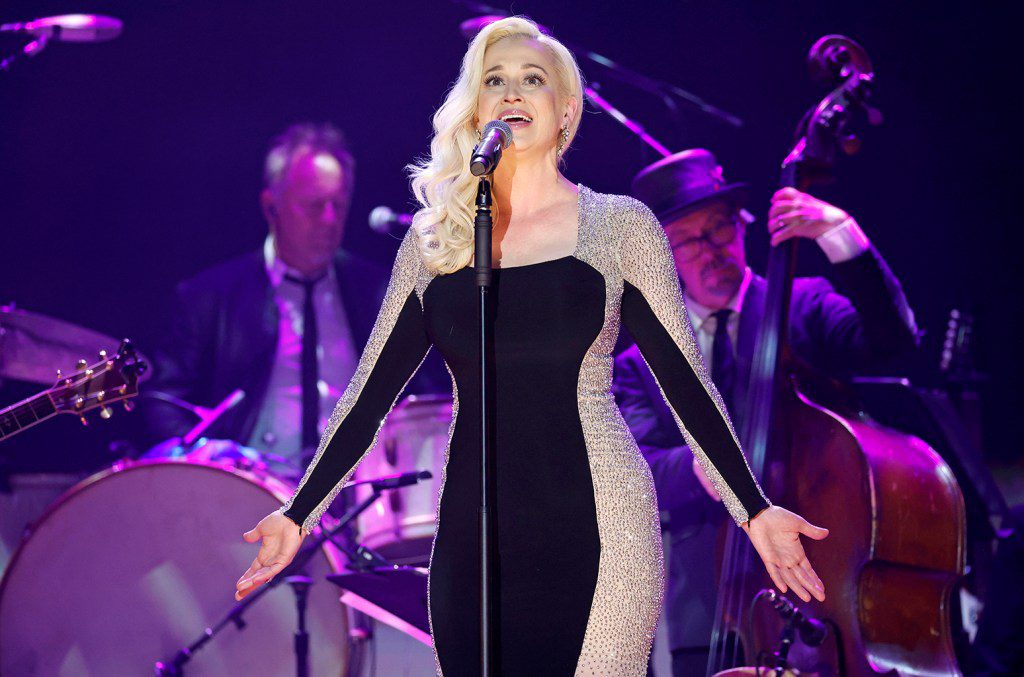When and how could gigs and festivals return in 2021? Industry insiders tell us what to expect
Music industry insiders, festival bosses and medical experts have spoken to NME about when live music might be able to return in the UK.
After the coronavirus pandemic cancelled last year’s festival season and made live gigs impossible – bar socially distanced shows outside of lockdown – many music fans are currently optimistically looking ahead to what summer 2021 may look like.
While Dr Anthony Fauci stated recently that full-capacity live shows could return to the US this autumn (provided that between 70-85% of the population have been vaccinated), hope now turns to what the live gig calendar could look like in the UK with the government’s ambitious vaccination roll-out plans in place ahead of what Health Secretary Matt Hancock described as “a ‘Great British Summer’” in 2021.
Some festivals, such as Manchester’s Parklife and London’s The Mighty Hoopla, have moved their events from earlier in the summer to September to stand a greater chance of being able to take place, while some artists, including The 1975 and Nick Cave & The Bad Seeds, have completely scrapped their 2021 tours rather than postponing them. Eyes now turn to the fate of Glastonbury in June, despite organiser Emily Eavis declaring that it is “not cancelled yet” and father Michael hoping that it will go ahead provided that “the majority of the population” have been vaccinated.
The UK Government say that they’re currently on target to vaccinate 14 million people by mid-February, with the current capacity for two million vaccinations per week. It is hoped that efforts will be amped up through vulnerable groups and tended to the rest of the country throughout the spring to allow for festivals to safely take place this summer.
Melvin Benn, managing director of Festival Republic and boss of events including Reading & Leeds and Download Festival, told NME: “I feel very positive because I know that it’s possible”.

“You’re monitoring everything every hour, if not every minute, so I was very confident about the early summer before Christmas – but the new strain is spreading quicker, so that knocks your confidence a little bit,” said Benn. “However, the rollout of the AstraZeneca vaccine picks your confidence back up again. I suppose I’m taking Matt Hancock and the Prime Minister’s word.
“The Prime Minister has said that 88% of hospitalisations and deaths will disappear once the over-70s and frontline workers are vaccinated. The Health Secretary said: ‘When that’s done, cry freedom’ – I’m crying freedom. At that point, I’m saying let’s get on with it.”
Benn continued: “I’m super confident about the end of the summer, I’m super confident about the beginning of the summer. If everyone over the age of 60, or definitely the age of 50, is vaccinated by the end of May, then Jesus – there should be no stopping us.”
After unveiling his Full Capacity Plan last year to reopen entertainment and hospitality without social distancing by using the NHS app, as well as telling NME that “everyone would be tested” before entering the festival, Benn has now spoken of his belief that the live music industry would be able to handle any challenges that may still lay ahead.

“The plan was always based on the vaccine first and testing second,” Benn told NME this week. “It could be a mix of both. I feel that we can get away with shows purely on testing. It’s immensely hard work, but operationally doable and hopefully unnecessary. The Full Capacity Plan was always based on verification of being clear of COVID, or clear of being in danger of COVID.
“The vaccination and verification that you’ve had it would give you that safety of knowing that you’re not going to get super-ill. It will work providing that they can get the majority of the people in the country vaccinated, and as long as there are enough people at the event who have been vaccinated.
“The industry has always done what it’s needed to do to create great festivals in a safe environment. If the government say to us that part of that will be testing, then we’ll do that. I’m taking the government line – they’re going to vaccinate everybody.”
He added: “Imagine what fun it’s going to be. It’s going to be bloody awesome, isn’t it? Rain or shine, being out in that field with thousands of people, wherever it is, watching any band or your favourite band, I just can’t wait. It’s mouth-watering just to think about.”
Isle Of Wight Festival boss John Giddings suggested last week that the UK’s empty music venues and out-of-work live crew should be put to use to help with the mass roll-out of the vaccine. He has now agreed with Benn that while more action needed to be taken, there was enough time to indeed take action to ensure that festivals could happen safely.
“I think you’d probably need for 50% of the audience to be vaccinated, and for 50% to be able to get a test in a very short period of time, like five-to-10 minutes,” said Giddings. “I don’t think that’s unrealistic. Isle Of Wight Festival is six months away, it’s not tomorrow. I just want to help accelerate the process.
“Everybody talks and nothing happens. We need to up our game. I’m bored with it. I want to see something physically happen. They can talk ‘til the cows come home. The discussions in Parliament don’t make my festival happen. Injecting people with a vaccine makes my festival happen. There is absolutely no reason for it not to happen. If we all pull together to achieve it, it’s possible.”
He added: “The fans all want to come, it’s my job to deliver it for them. I don’t want to let them down again. I will do everything in my physical power to make it happen. Look at the glass as half full and fill it up.”

However, many festivals have warned that they could be forced to announce their cancellation as soon as the end of this month without government clarity and help with insurance. Without government-backed insurance, many festivals will not survive another summer of last-minute cancellations.
These fears were relayed to a select committee earlier this month, with Parklife co-founder Sacha Lord echoing that vaccinations and mass testing would be key as “social distancing does not work at any of these events”. Association of Independent Festivals’ Chief Executive Paul Reed told NME that there was time to put safe plans together – provided that action is taken now.
“I still think it’s too early to tell whether the season is on or off or somewhere in between,” said Reed. “Obviously we’re in a really pivotal moment in this pandemic. In some ways, summer seems distant and to some it might seem too early to be talking about the festival season – but it’s absolutely the right time to be having these conversations, giving that the incredibly lengthy lead times and planning cycles generally take six to eight months.
“It costs anything from half a million pounds to stage a 5,000-capacity festival, to upwards of £20 million for some of the UK’s largest ones. That’s a huge upfront commitment with no safety net. We’re approaching a point now where some of the larger festivals are going to have to make a determination on 2021. That could be a bellwether of sorts for the festival season. Glastonbury will set the tone and inform public confidence in festivals going forward.
“There are almost 1,000 festivals in the UK. While the larger ones will make decisions imminently, probably by the end of this month, the cut-off point for some of the smaller ones will be March or early April.”

Emphasising the importance of insurance, Reed said: “There’s a real danger that the public health situation will change dramatically in the spring and there could be a confidence in gatherings and festivals taking place, but the failure of insurance would heighten the risk too much for a festival to happen. Businesses will collapse and all the economic and human consequences will follow. What we have now is a vaccine and vaccine roll-out plan. We’re hoping that means the government can give us a clear idea of the road map for live music.”
Festivals aside, there is hope for smaller gigs returning sooner than later. Recent tests conducted in Germany into the transmission of coronavirus at indoor concerts found that the environment poses a “low-to-very low” risk to attendees of contracting the disease. Another recent study found that the risk of infecting someone in a venue “through aerosol transmission can be almost ruled out”, providing that the venue has a sufficient fresh-air supply and that all attendees are wearing face masks.
Meanwhile, in the UK, London’s legendary 100 Club is set to pilot a new ventilation system that aims to wipe out 99.99% of dangerous airborne pathogens, such as coronavirus, within buildings. The aim of the trial is “to prove that the integration of this new system into a building’s air conditioning creates an indoor environment that is COVID-secure, allowing audience numbers to return to a pre-pandemic normal for Britain’s 1,100 theatres and thousands of live music venues”.

“It would be quite profound if it was successful,” Music Venue Trust CEO Mark Davyd told NME. “We’re keen that we not only bring back live music, but that we bring it back safely. There are some things to be learned from the pandemic that we are keen to roll out at the Test, Clean, Prevent gigs at The 100 Club. This isn’t just about how we make gigs safe, but also how can we improve the health and safety of gigs anyway? We don’t just want to make it through this pandemic and think, ‘Oh, that’s over’ – we need to be thinking about making it through the next one.”
He continued: “The modelling that we’ve done with the government suggests that the process would provide an extremely safe event – probably unnecessarily safe – but it’s good to do that to see how we can improve things like air quality and cleanliness.”
Asked about what real impact this would have for the gig-going public, Davyd replied: “It would be quite dramatic I think. Once we’ve established that we can run events that have a higher level of risk management, then you can go back to government with science to say that you can go back to full capacity. People are catastrophising, saying that nothing will go back to normal until next year. I don’t see that as being the outcome. I think it’s going to require some ingenuity and inventiveness, but it is possible to continue to imagine how we get back.”
“If the infection rate is reduced quite substantially, or the mortality rate through the vaccine, then there isn’t a logical, scientific or mathematical reason why you wouldn’t be able to do small capacity gigs in music venues this year. The same doesn’t go for all capacity gigs, as it’s all about risk management. Bringing 500 people together is less of a risk than bringing 5000 people together.”

Quizzed on the likelihood of stadium and arena shows returning soon, Davyd said: “I’m guessing that it would difficult to put on the Green Day ‘Hella Mega Tour’ in June of this year, but there’s quite a lot of distance between that and someone going to see Pa Salieu in a small gig in May. These gigs are not the same. There’s a long tail here, but there are a lot of bright points along the way.”
He added: “I’m not as pessimistic about music returning to small venues in people’s local towns and cities as other people are about us getting the whole live music industry back up and running. I’m certain we can put on socially distanced gigs from spring onwards – that’s our position and the government’s position. Can we put on a full capacity gig at The Adelphi in Hull in 2021? I’m going to say yes at this point. I think full capacity with something near normal behaviour will take a little bit longer, but we’re confident it will happen this year.”
Dr Michael Head is a Senior Research Fellow in Global Health at the University of Southampton. Speaking to NME, he warned that the necessary level of vaccination might not be reached until the end of summer.
“Before the government starts to open things up, and that’s including gigs and festivals, we would want to see all of the vulnerable people vaccinated; all of groups one to nine,” he said. “We’d also want a large amount of the rest of population vaccinated too before to allow people to mix too freely – whether that be indoors or outdoors.
Dr Head continued: “We’d want a bare minimum of 50% of the population to be vaccinated, but probably more like 60%. That would probably take us towards the end of the summer at around August or September. I think at that point we could probably start to look at allowing gatherings to happen in larger numbers. If you were planning something very large like Glastonbury, I’d probably be waiting until next year for sure.”
While worrying about the safety and reliability of rapid-testing as a tool for gigs and festivals to use, Dr Head admitted that there is hope for events if mass vaccination is achieved much quicker than expected.
“We’ll see – they could scale up the roll-out,” he added. “It’s already pretty impressive at the minute, with about a million people vaccinated last week. Maybe they’ll get round to low risk people sooner.”
UK Music shared a report, Let the Music Play: Save Our Summer 2021, earlier this month outlining their recommendations for how to restart the UK’s live music industry once it is safe to do so with government support.
UK Music shared a report, Let the Music Play: Save Our Summer 2021, earlier this month outlining their recommendations for how to restart the UK’s live music industry once it is safe to do so with government support.





